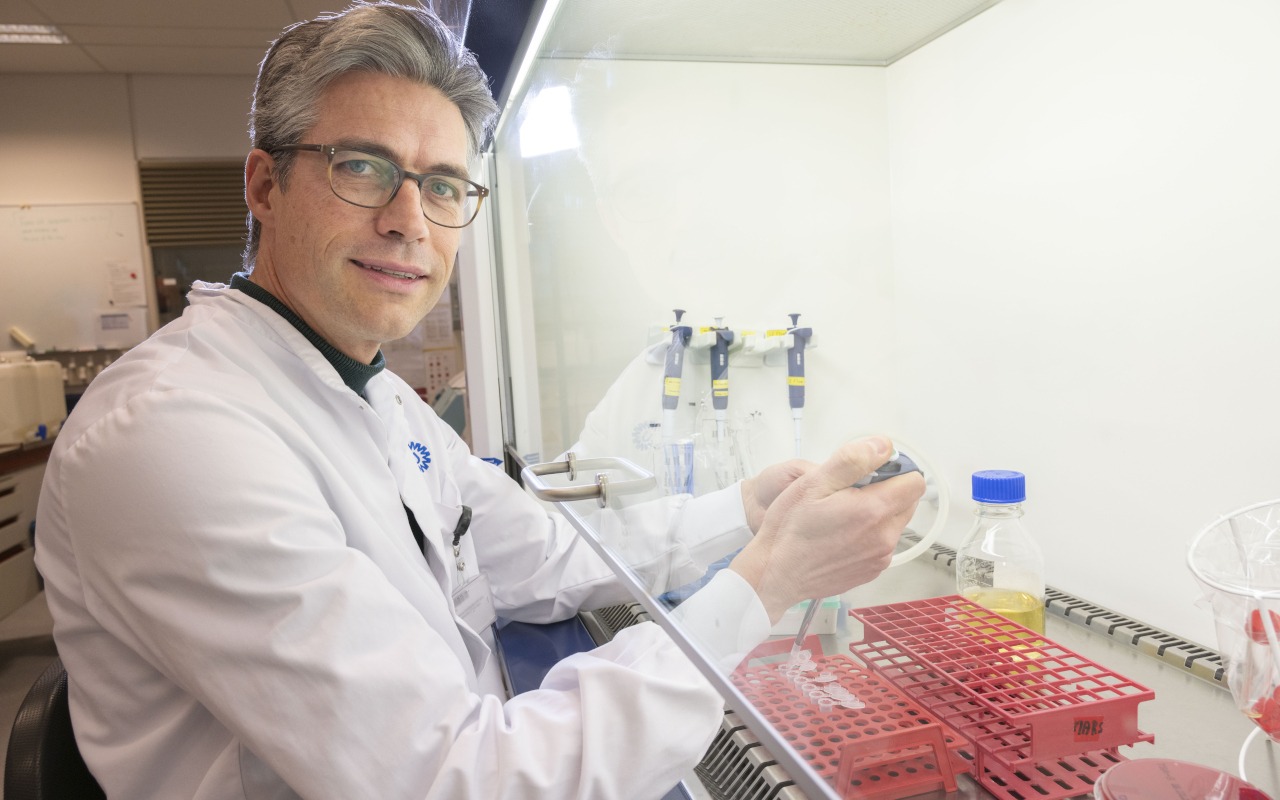UMC Utrecht has treated a patient with an infection resulting from a multi-resistant bacterium for the first time with a customized therapy using bacteriophages. This is the first time that a “phage therapy” has been tailored and subsequently applied in the Netherlands.
A broad, multidisciplinary team of specialists from UMC Utrecht consulted and decided together that this experimental treatment was suitable for this patient. “This cooperation between different departments was essential to make the therapy possible,” says physician and microbiologist Pieter-Jan Haas, MD PhD. Together with Marjolein Hensgens, MD PhD (internist-infectiologist), Inez Bronsveld, MD PhD (pulmonologist) and Jan Dekker, MSc MBA (pharmacist), he worked on the development of this experimental therapy.
Bacteriophages are viruses that can kill bacteria. Bacteriophages also work against antibiotic-resistant bacteria. This would make bacteriophages potentially suitable for people dealing with bacteria that can no longer be fought with traditional antibiotics, Haas explained. “Much research is still needed before phage therapy becomes a common treatment. Partly because a personalized therapy must be developed for each patient. However, phage therapy is seen as one of the future solutions to the problem of antibiotic resistance.”
UMC Utrecht regularly receives inquiries from people hoping that phage therapy could also be a solution for them. Currently, unfortunately, UMC Utrecht cannot offer phage therapy for these patients. This, because the therapy is still experimental and there are several specific criteria that must be met:
Even if a patient would meet these criteria, it remains up to a multidisciplinary team of physicians to make a careful assessment of whether there is medical need to provide such an experimental therapy.
Pieter-Jan Haas, MD PhD
“Recently we have taken a number of important steps to bring therapy with bacteriophages closer as a common therapy,” says Haas. For example, in cooperation with Jan Dekker of the UMC Utrecht pharmacy, international agreements have been drawn up so that pharmacists can also test if the therapy is manufactured properly and if the treatment is safe.
There have been previous patients in the Netherlands who have received bacteriophages that they themselves obtained from abroad. What is special about the Utrecht patient is that the phages were specifically selected against the patient’s bacteria and tested against the new European quality criteria for bacteriophages, ánd that the phage therapy was prescribed by Dutch physicians and prepared by Dutch pharmacists.
In recent years, several studies have been published showing that bacteriophages can be administered safely. “Now it is time to also properly investigate how effective and feasible phage therapy is. Although bacteriophages were discovered as a potential drug almost a century ago, little scientific research to modern standards has been done on them,” says Haas. “That is only now really getting underway, and also as UMC Utrecht we want to start research. Through this first treatment, we have gained experience in preparing and administering the therapy. Whether this therapy actually works is impossible to say on the basis of a single case.”
According to the WHO, antimicrobial resistance (AMR) is a global health and development threat and requires urgent multisectoral action. The European Centers for Disease Control (ECDC) estimate that up to 35.000 people in Europe die each year from antibiotic-resistant infections, a number that is expected to increase in the next decades. In addition to death and disability, prolonged illness results in longer hospital stays, the need for more expensive medicines and increased health care costs. Without effective antimicrobials or alternatives, the success of modern medicine in treating infections, including during major surgery and chemotherapy, would be at increased risk.

